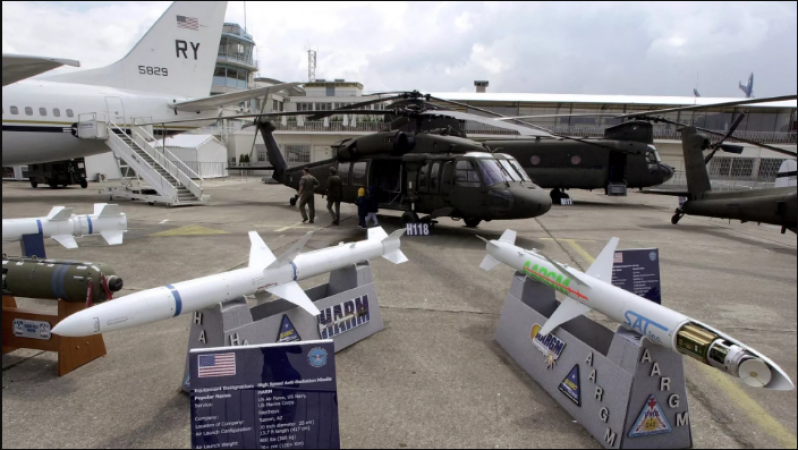
Moscow: This step has been taken amid the ongoing tension between Beijing and Washington over the growing US support for Taiwan.
The Senate this week introduced a bill that proposes billions of dollars in new security aid for the island. The bill also calls for Taiwan to be designated as a "major non-NATO ally" in violation of the Sino-US diplomatic treaties.
In response to US arms sales to Taiwan, Beijing on Friday sanctioned two US defense groups.
Mao urged the US government and businesses to abide by the provisions of the One China Doctrine and the Sino-US Relations Communiqué, to halt arms sales and military contacts with Taipei and "to prevent factors that cause tensions in the Taiwan Strait". did.
"In light of the situation, China will continue to take all necessary measures to firmly defend its sovereignty and security interests," the spokesman said.
State Department spokesman Ned Price said the Biden administration would "continue" to deepen the US-Taiwan "partnership" through "effective diplomatic, economic and military support", less than 24 hours after the sanctions came into force. Have become.
The Senate Foreign Relations Committee advanced a controversial draft law called the 'Taiwan Policy Act 2022', which escalates Sino-US tensions over Taiwan.
The bipartisan bill requests that Washington provide an additional $4.5 billion in "security assistance" to Taipei as well as a $2 billion loan guarantee authorization for Taipei to purchase additional military equipment.
The bill also proposes designating Taiwan as a "major non-NATO ally" of the United States, and directs Washington to work with the "democratic government of Taiwan", which it considers legitimate the island's residents. The representative agrees.
The bill instructs the Pentagon to establish joint training with Taiwan's Defense Forces and the State Department to present a strategy to address perceived Chinese economic pressure from countries that have increased support for Taiwan.
If passed, the law would be a direct violation of the United States' commitments to the One China Principle and the U.S.-China relations communiqué, which bars Washington from having formal diplomatic relations with Taipei and makes the People's Republic of China the sole sovereign state. recognizes as. Known in the international community as 'China' (Taiwan formally refers to itself as the 'Republic of China', but the US abandoned formal recognition in 1979).
The bipartisan legislation, which has now been advanced to the full Senate for consideration, comes amid already heightened tensions between Beijing and Washington over Taiwan as a result of House Speaker Nancy Pelosi's provocative tip on the island in early August. Other US lawmakers have visited Taipei in response to his visit.
Beijing responded to Pelosi and her allies' voyages by launching a series of large-scale war games around the island.
At the end of the Chinese Civil War in 1949, Kuomintang nationalist forces fled to Taiwan after Mao Zedong's Communists took control of the rest of the country.
Taiwan was never recognized as a self-governing territory by the People's Republic of China, instead as a renegade province destined for eventual reunification with the mainland under the 'One China, Two Systems' model. which also applied to Hong Kong and Macau. Chinese President Xi Jinping has prioritized the reunification of Taiwan in his national rejuvenation campaign.
Kremlin said Russia and China have no ambitions of world dominance
EU has called for a war crimes tribunal to investigate mass graves in city of Izyum
Russian Nuclear Doctrine Contains Cases of Nuclear Weapons Use